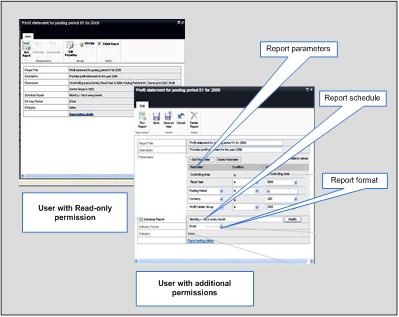Learn how SharePoint permissions affect what you see in Duet
Microsoft SharePoint Server and Duet Enterprise for Microsoft SharePoint and SAPare closely integrated.
What you see on a page in a SharePoint site depends on your permissions. You might discover that different options appear on two different pages. For example, you might notice that an option appears inactive, or that the option does not appear on the page.
These situations happen because of the way security features operate in SharePoint Server. Two things are important:
-
Your permissions determine what you can see, and SharePoint Server enables a site designer to control permissions at many different levels.
-
Your permissions can differ between sites, and can differ between content items on the same site.
For example, you might find that you have different permissions on a list of reports and on a list of tasks, and that the menu options you have for one are not be available the other.
-
Your permissions and authorizations determine whether you can see any of these things:
-
Certain pages on the site
-
Reports or report requests, documents, dashboards, and so on
-
Menu options, such as the options that appear under the SharePoint ServerSite Actions menu
-
Options for actions on reports, documents, and other list elements
SharePoint Server security helps make sure that users can only interact with report options for which they have permission. Thus, if you do not have permissions to see or modify the schedule for a report, the report schedule options should not appear on your report request.
You can see how this works in the following illustration, which shows two different property pages for the same report. In the primary window, the user has additional permissions. This user can customize settings for all the elements on the page: report parameters, the report schedule, the format, and so on. However, in the other illustration, the user has read-only permissions, and cannot make changes to any setting. All of the fields in the body of the request are inactive (grayed out), and the user cannot modify them

No comments:
Post a Comment